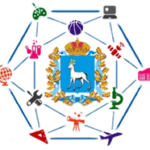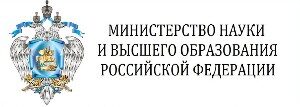Профиль
Diesel Generators for Microgrid Applications A Comprehensive Overview # Title: Diesel Generators for Microgrid Applications: A Comprehensive Overview ## Introduction In the evolving landscape of energy generation, microgrids have emerged as a pivotal solution for enhancing energy resilience, efficiency, and sustainability. Microgrids are localized grids that can operate independently or in conjunction with the traditional grid, providing a reliable source of power to communities, enterprises, and critical infrastructure. Among various generation technologies, diesel generators have been a longstanding choice for microgrid applications. This article delves into the role of diesel generators in microgrid systems, exploring their advantages, challenges, operational considerations, and future perspectives. ## Understanding Microgrids ### Definition and Components A microgrid is a small-scale power grid that can operate autonomously or in conjunction with the main grid. It typically consists of: - **Distributed Energy Resources (DERs)**: These include renewable energy sources (solar panels, wind turbines), conventional generators (diesel generators, natural gas turbines), and energy storage systems (batteries). - **Control Systems**: Advanced control technologies are essential for managing the generation, distribution, and consumption of electricity within the microgrid. - **Load Management**: This involves the integration of demand-side resources, allowing for better energy efficiency and reliability. ### Applications of Microgrids Microgrids can be deployed in various settings, including: - **Remote Communities**: Areas lacking access to the main grid can utilize microgrids for energy independence. - **Commercial and Industrial Sites**: Businesses can achieve energy efficiency and cost savings while ensuring uninterrupted power supply. - **Military Installations**: Microgrids provide critical energy security for defense operations. - **Disaster Recovery**: In the aftermath of natural disasters, microgrids can restore power quickly to affected areas. ## The Role of Diesel Generators in Microgrids ### Advantages of Diesel Generators 1. **Reliability**: Diesel generators have a proven track record of reliability and performance, making them a dependable choice for backup power and peak shaving. 2. **Rapid Deployment**: Diesel generators can be quickly deployed and are widely available, allowing for immediate energy solutions in urgent situations. 3. **High Energy Density**: Diesel fuel has a high energy density, enabling generators to provide substantial power output with relatively small fuel volumes. 4. **Mature Technology**: The technology behind diesel generators is well-established, with extensive support and maintenance networks globally. 5. **Cost-Effectiveness**: Diesel generators often have lower initial capital costs compared to other generation technologies, making them an attractive option for many microgrid applications. ### Challenges of Diesel Generators 1. **Environmental Concerns**: Diesel generators emit greenhouse gases and pollutants, contributing to air quality issues and climate change. 2. **Fuel Supply Issues**: Dependence on diesel fuel can lead to supply chain vulnerabilities, especially in remote areas. 3. **Noise Pollution**: Diesel generators can be noisy, which may be a concern in residential or sensitive environments. 4. **Operational Costs**: While initial costs may be lower, ongoing fuel and maintenance costs can add up over time. 5. **Regulatory Constraints**: Increasingly stringent environmental regulations may impact the viability of diesel generators in some regions. ## Integration of Diesel Generators in Microgrid Systems ### System Design Considerations When integrating diesel generators into microgrid systems, several design considerations must be addressed: 1. **Sizing and Capacity**: Proper sizing of the diesel generator is crucial to meet the microgrid's peak demand and ensure efficient operation. 2. **Hybrid Configurations**: Diesel generators are often combined with renewable energy sources (e.g., solar, wind) and energy storage systems to create a hybrid microgrid that balances reliability, cost, and environmental impact. 3. **Control Strategies**: Advanced control systems are necessary to optimize the operation of diesel generators alongside other DERs. This includes load forecasting, real-time monitoring, and automated dispatch. 4. **Fuel Storage and Supply**: Adequate fuel storage and supply chain management are essential to ensure the continuous operation of diesel generators, particularly in remote applications. 5. **Maintenance and Reliability**: Regular maintenance schedules must be established to ensure the longevity and reliability of diesel generators within the microgrid. ### Operational Strategies The operational strategies for diesel generators in microgrid applications can include: 1. **Peak Shaving**: Utilizing diesel generators during peak demand periods to reduce strain on the grid and lower energy costs. 2. **Backup Power**: Providing reliable backup power during grid outages or when renewable sources are insufficient. 3. **Energy Arbitrage**: Diesel generators can be operated during times of high electricity prices to generate revenue by selling power back to the grid. 4. **Hybrid Operation**: Coordinating with renewable energy sources to minimize fuel consumption and emissions while maximizing the use of clean energy. ## Case Studies of Diesel Generators in Microgrid Applications ### Case Study 1: Remote Island Microgrid A remote island community faced significant challenges in accessing reliable power from the main grid. A microgrid solution was developed, incorporating a diesel generator as the primary source of energy. The system was designed to work in conjunction with solar panels and battery storage, allowing for reduced diesel consumption during peak sunlight hours. This hybrid approach not only improved energy resilience but also decreased fuel costs and emissions. ### Case Study 2: Military Base Microgrid A military installation required a robust and reliable energy solution to support critical operations. A diesel generator was integrated into the microgrid, providing a reliable backup during grid outages. The system was equipped with advanced control technology to optimize the generator's operation alongside renewable energy sources. This configuration ensured energy security while minimizing reliance on fossil fuels. ### Case Study 3: Urban Commercial Microgrid An urban commercial district sought to enhance energy efficiency and reliability. Industrial Diesel Generator was developed with a diesel generator as a backup power source, integrated with a solar PV system and battery storage. The microgrid allowed businesses to reduce energy costs through peak shaving and provided resilience against outages. This implementation showcased the potential of diesel generators in urban applications, balancing cost and environmental concerns. ## Future Perspectives for Diesel Generators in Microgrids ### Technological Advancements The future of diesel generators in microgrid applications will be shaped by technological advancements. Key areas of development include: 1. **Emission Reduction Technologies**: Advances in emissions control technologies, such as selective catalytic reduction (SCR) and diesel particulate filters (DPFs), can help reduce the environmental impact of diesel generators. 2. **Hybridization with Renewable Technologies**: The integration of diesel generators with advanced energy storage systems and renewable resources will continue to evolve, creating more efficient and sustainable hybrid microgrid systems. 3. **Digitalization and Smart Grids**: The utilization of Internet of Things (IoT) technologies and smart grid solutions will enhance the monitoring and control of diesel generators, improving their efficiency and operational flexibility. 4. **Alternative Fuels**: Research into alternative fuels, such as biodiesel and synthetic fuels, may provide more sustainable options for diesel generators, reducing their carbon footprint. ### Policy and Regulatory Changes As global awareness of climate change and environmental sustainability increases, policy and regulatory frameworks will likely evolve. This could result in: 1. **Incentives for Cleaner Technologies**: Governments may introduce incentives for the adoption of cleaner technologies, impacting the competitiveness of diesel generators. 2. **Stricter Emission Standards**: Regulations may become more stringent, necessitating the adoption of emissions control technologies for existing diesel generators. 3. **Support for Renewable Integration**: Policies promoting renewable energy and energy storage may influence the role of diesel generators in microgrid applications, encouraging hybrid configurations. ### Economic Considerations The economic landscape for diesel generators in microgrid applications will be influenced by several factors: 1. **Fuel Price Volatility**: Fluctuations in diesel fuel prices can impact the operating costs and overall economics of diesel generator usage. 2. **Competition from Renewables**: As renewable energy technologies become more cost-competitive, the role of diesel generators may be challenged, particularly in regions with abundant renewable resources. 3. **Investment in Infrastructure**: Increased investment in microgrid infrastructure will be necessary to support the integration of diesel generators and other energy technologies. ## Conclusion Diesel generators continue to play a significant role in microgrid applications, providing reliable and efficient energy solutions for a variety of settings. While challenges such as environmental concerns and fuel dependency exist, advancements in technology and integration with renewable energy sources present opportunities for innovation. As energy landscapes evolve, the role of diesel generators will likely adapt, contributing to the development of sustainable and resilient microgrid systems. Through careful planning, design, and operational strategies, diesel generators can remain a vital component of the energy mix in the future, helping to ensure energy security and reliability for communities worldwide.
Роль форума: Модератор
Тем начато: 0
Ответов написано: 0
























